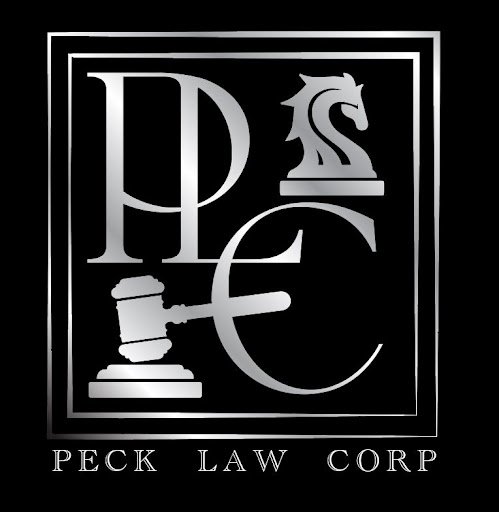Recognizing Common Types of Nursing Home Injuries & Signs to Look Out For
Caring for aging loved ones is a profound responsibility, and many families turn to nursing homes for professional care. Unfortunately, nursing home residents are vulnerable to injuries, some of which result from neglect, abuse, or unsafe environments. Understanding the common types of nursing home injuries and recognizing their signs is crucial for ensuring the safety and well-being of elderly residents.
In this article, we will explore the most prevalent types of nursing home injuries, discuss the warning signs to look out for, and provide guidance on seeking help if you suspect elder abuse or neglect. As experts in elder law, Peck Law Corporation is dedicated to protecting the rights of elderly residents in Southern California and ensuring they receive the care and respect they deserve.
1. Falls and Fractures
Falls are one of the most common types of nursing home injuries. The Centers for Disease Control and Prevention (CDC) reports that falls are the leading cause of injury among adults aged 65 and older. Nursing home residents, particularly those with mobility issues, are at a heightened risk.
Causes:
Slippery floors
Poor lighting
Inadequate supervision
Improper use of mobility aids
Signs to Look Out For:
Bruises, cuts, or fractures
Difficulty walking or complaints of pain
Fear or anxiety about moving
Changes in behavior indicating a fear of falling
Preventing falls requires adequate staff training, proper use of assistive devices, and maintaining a safe environment. If these safeguards are not in place, injuries can result, compromising the resident’s health and quality of life.
2. Bedsores (Pressure Ulcers)
Bedsores, also known as pressure ulcers, occur when prolonged pressure on the skin restricts blood flow, leading to tissue damage. These injuries are often preventable and indicate neglect when they occur in nursing home settings.
Causes:
Prolonged immobility
Lack of repositioning
Unsanitary bedding
Inadequate nutrition and hydration
Signs to Look Out For:
Red, swollen, or discolored skin
Open wounds or sores, particularly on bony areas like the hips, heels, or tailbone
Complaints of pain or discomfort
Signs of infection, such as fever or pus
Proper care, including regular repositioning of immobile residents, maintaining clean and dry bedding, and providing proper nutrition, is essential to prevent bedsores in nursing homes.
3. Medication Errors
Medication errors are another significant type of nursing home injury. These errors can result from incorrect dosages, administering the wrong medication, or failing to provide necessary medications on time.
Causes:
Understaffing or overworked caregivers
Lack of communication among healthcare providers
Failure to update medication records
Signs to Look Out For:
Sudden changes in the resident’s condition or behavior
Unexplained side effects or adverse reactions
Complaints of missed or incorrect medications
Medication management requires meticulous attention to detail. Errors can lead to serious complications, including hospitalization or even death.
4. Dehydration and Malnutrition
Proper nutrition and hydration are critical for elderly residents’ overall health. Dehydration and malnutrition often occur in nursing homes due to neglect, lack of oversight, or an inability to meet residents’ dietary needs.
Causes:
Staff neglecting to monitor food and water intake
Inadequate meal preparation or dietary accommodations
Lack of assistance for residents who need help eating or drinking
Signs to Look Out For:
Rapid weight loss or gaunt appearance
Dry mouth or cracked lips
Fatigue, confusion, or irritability
Weakness or recurring infections
Ensuring residents receive balanced meals and remain hydrated requires attentive and compassionate caregiving. Failure to do so puts residents at risk for severe health complications.
5. Emotional and Psychological Injuries
Not all nursing home injuries are physical. Emotional and psychological harm can occur due to verbal abuse, isolation, or neglect.
Causes:
Verbal threats, insults, or intimidation
Failure to provide companionship or engage residents in activities
Physical neglect leading to feelings of abandonment
Signs to Look Out For:
Withdrawal from social activities or depression
Sudden changes in mood or personality
Anxiety or fearfulness around certain staff members
Expressions of loneliness or hopelessness
Emotional injuries can be as debilitating as physical ones, affecting a resident’s mental health and overall quality of life.
6. Infections
Elderly individuals often have weaker immune systems, making them more susceptible to infections. In nursing homes, poor hygiene practices or neglect can lead to preventable infections.
Causes:
Unsanitary living conditions
Lack of handwashing or personal hygiene assistance
Failure to address minor wounds or illnesses promptly
Signs to Look Out For:
Fever, chills, or lethargy
Unexplained pain or redness around wounds
Coughing or difficulty breathing
Frequent urinary tract infections (UTIs)
Maintaining a clean environment and addressing health concerns promptly are essential steps to prevent infections in nursing home settings.
Preventing Nursing Home Injuries
While nursing homes have a duty to ensure residents’ safety, families can take proactive steps to minimize risks:
Regular Visits: Frequent visits allow families to observe the care their loved ones are receiving.
Ask Questions: Speak with staff about care routines and safety measures in place.
Observe Behavior: Watch for signs of fear, anxiety, or withdrawal in your loved one.
Monitor Health: Keep track of any unexplained injuries, changes in behavior, or health conditions.
The Role of Peck Law Corporation in Addressing Nursing Home Injuries
If you suspect that your loved one has suffered from any of these common types of nursing home injuries, it is essential to act swiftly. Peck Law Corporation specializes in elder law and has extensive experience handling cases of elder abuse and nursing home abuse across Southern California. We are dedicated to protecting the rights of elderly residents and ensuring that nursing homes are held accountable for providing substandard care.
Our team provides personalized legal guidance and compassionate support to families navigating the complexities of elder abuse cases. We understand the profound impact these injuries have on families and are committed to helping you achieve justice for your loved ones.
Contact Peck Law Corporation Today
Nursing home injuries can significantly impact the health and well-being of vulnerable residents. By recognizing the common types of nursing home injuries and their warning signs, families can take steps to safeguard their loved ones and address any concerns promptly.
If you live in Southern California and suspect that your loved one is a victim of nursing home neglect or abuse, contact us at Peck Law Corporation. Our experienced nursing home abuse lawyers are ready to discuss your case and provide the support and guidance you need. Protect your loved ones by exploring your legal options with us today.
FAQs
-
Not all nursing home injuries are caused by abuse or neglect; some may result from underlying medical conditions or accidents. However, recurring injuries or those caused by unsafe environments often point to negligence or substandard care.
-
Compensation in these cases may cover medical expenses, pain and suffering, emotional distress, and sometimes punitive damages. An attorney can evaluate your case to determine the types of compensation you may be eligible for.
-
In California, the statute of limitations for filing a nursing home abuse or neglect lawsuit is typically two years from the date of the injury. Consulting an attorney promptly can help ensure your case is filed within the required timeframe.


